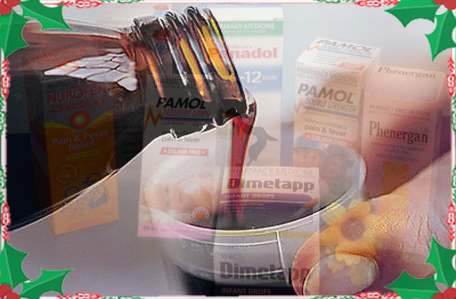May 5, 2011 -- In an effort to make sure children take medications in proper doses, the FDA has issued final guidance to companies that make, distribute, and sell liquid over-the-counter drugs that are packaged with droppers, syringes, spoons, and cups.
According to the FDA, the guidance was issued because of concerns about the potential for accidental drug overdoses that can occur from the use of dosage delivery devices with markings that are confusing, unclear or inconsistent with the labeled dosage directions.
Several recent studies have indicated that children often receive improper doses of liquid OTC medicines because parents give them in household spoons, or because the included dosing devices are poorly marked.
Accidental medication overdose in young children is an increasingly common but preventable public health problem. Overdoses of acetaminophen are among the most frequent unintentional poisonings seen in emergency departments and can lead to acute liver failure.
The guidelines describe how clearly marked and easy-to-use dosage delivery devices can minimize the risk of unintentional overdose when children are treated with over-the-counter liquid medication for conditions such as cough, cold, pain, and digestion problems. The key recommendations for manufacturers in the FDA guidance include:
- Dosage delivery devices for orally ingested liquid over-the-counter products should be included in all products.
- Devices should be marked with calibrated units of liquid measurement, such as teaspoon, tablespoon, or milliliter, that are the same as specified in the product directions. The devices should have no unnecessary markings.
- Manufacturers should make sure that dosage delivery devices are used only with products they are intended to be packaged with.
- The liquid measure markings on the devices should be clearly visible and not obscured when the liquid product is added to the device.
The FDA's new recommendation also lists tips that caregivers should follow when giving medicine to a child, including the following:
- Always read and follow the Drug Facts label on your OTC medicine.
- Know the ‘active ingredient’ in the medicine.
- Give the right medicine, in the right amount.
- Talk to your doctor, pharmacist, or nurse to find out what mixes well and what doesn’t.
- Use the dosing tool that comes with the medicine, such as a dropper or a dosing cup.
- Know the difference between a tablespoon and a teaspoon.
- Know your patient’s weight.
- Prevent a poison emergency by always using a child-resistant cap.
- Store all medicines in a safe place.
- Check the medicine three times.
In case you have questions about dosage delivery devices or how to measure medicines you can always call us on 2356 anytime a day.

Your Baby checkup
what are the vaccinations that he should have taken until now?
Generate a report for my baby.
Track Your Baby Vaccinations
Find Your Baby name
Mohandessin
01002195777
01000012400
0233048350
Beverly Hills
01000012900
0238576831
El Tagamo3
Al Sheikh Zayed
02- 38514031
01000608597


